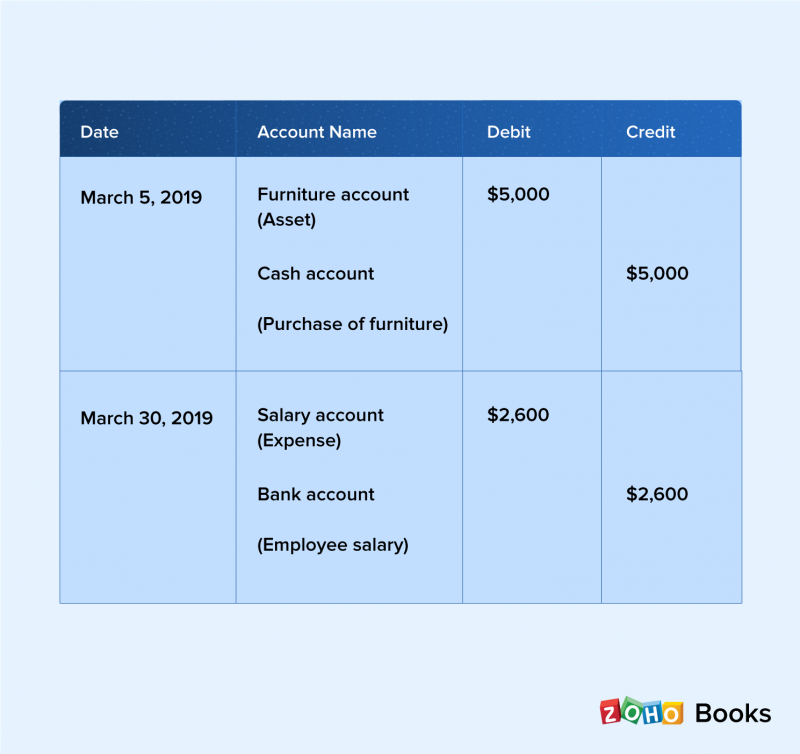
You can set aside a small amount of money for petty expenses. It is a good alternative to writing and cashing cheques, which are inconvenient and costly. It is also time- and energy-saving. Petty cash can be used to pay small bills or expenses.
Accounting software makes it easy to manage petty cash
Accounting software can simplify the process of managing petty funds. It can help businesses keep track of their petty cash accounts and ensure that all transactions are accurately recorded. It is vital because petty money transactions can quickly add up, which could impact a company's ability claim tax deductions.
Petty cash allows you to pay for small purchases or expenses that wouldn't normally be covered by your company's main bank account. It's a much faster, more efficient way to make these purchases than flooding the accounting team with receipts. It's easy for businesses to see where their money is being spent, as it's recorded alongside expenses.

Acumatica's cash transactions module includes many features to make managing petty money accounts easier. This module has features that allow you to reconcile your cash accounts, as well as manage your short-term cash reserve. The module also allows for a full audit trail of cash transactions. This makes it easy to find and correct errors. It also tracks details about each transaction, including who entered them and how they were modified.
Paper-based petty Cash Management
The process of recording cash transactions is called petty cash management. The custodian maintains a log detailing transactions and accounts. A petty cash reconciliation is also required, and the Accountable Officer must approve the count. Surprise counts should be done throughout each year. Additionally, University Audit and Compliance audits petty cash funds on a periodic basis.
Good internal control systems are essential to manage petty money. A good internal control system will ensure that all purchases, sales transactions, and monthly payments are properly reconciled. Companies must keep accurate records in order to avoid deductions from their financial statements due to petty cash transactions that can accumulate over time. Other important internal controls to manage petty-cash include the safeguarding of petty funds, segregating tasks, and reconciling every month.
Petty cash management software can help companies track and manage their petty cash. This software can streamline and automate petty cash management. It can also help control personal purchases and minimize human error.

Cloud-based petty Cash Management
The cloud-based petty cash management solution offers many benefits to small businesses. These services can help you track all outgoing and coming expenses, which is a big advantage over manual petty-cash management. This enables you to better manage your funds and avoid fraud and theft. This allows you to track and report your petty cash expenses, which can help reduce the chance of overspending.
Cloud-based petty money management solutions offer security and ease-of-use. Unlike manual petty cash management, a Cloud-based solution lets you access your petty cash records with just a few clicks. Software also provides security measures like passcode locks and passcode locks to stop unauthorized access.
When it comes to petty cash management, recordkeeping is of utmost importance. If an employee requests a refund, the custodian will need to log the request into a central log. Sometimes companies may still use paper coupon, which employees must complete and sign before cash is released. These vouchers then are used in reconciliation.
FAQ
How much do accountants make?
Yes, accountants usually get paid hourly rates.
Complex financial statements may be prepared by accountants who charge additional.
Sometimes, accountants are hired for specific tasks. For example, a public relations firm might hire an accountant to prepare a report showing how well their client is doing.
What should I expect from an accountant when I hire them?
When hiring an accountant, ask questions about their experience, qualifications, and references.
You want someone who has done this before and knows what he/she is doing.
Ask them about any skills or knowledge they may have that could be of assistance to you.
Make sure that they are well-respected in the local community.
Why is reconciliation important?
It's vital as mistakes may happen, and you don't know what to do. Mistakes include incorrect entries, missing entries, duplicate entries, etc.
These problems can have serious consequences such as inaccurate financial statements, missed deadlines and overspending.
What is the difference between accounting and bookkeeping?
Accounting refers to the study of financial transactions. Bookkeeping is the documentation of such transactions.
These two activities are closely related, but distinct.
Accounting deals primarily on numbers, while bookkeeping deals mostly with people.
For reporting purposes on an organization's financial condition, bookkeepers keep financial records.
They make sure all of the books balance by adjusting entries in accounts payable, accounts receivable, payroll, etc.
Accounting professionals analyze financial statements to assess whether they conform to generally accepted accounting procedures (GAAP).
If they don't, they might suggest changes to GAAP.
For accountants to be able to analyze the data, bookkeepers must keep track of financial transactions.
How do accountants function?
Accountants work closely with their clients to make sure they get the most from their money.
They work closely alongside professionals like bankers, attorneys, auditors and appraisers.
They also interact with departments within the company, such as sales and marketing.
Accountants are responsible for ensuring that the books are balanced.
They determine the tax amount that must be paid to collect it.
They also prepare financial reports that reflect how the company is doing financially.
Statistics
- The U.S. Bureau of Labor Statistics (BLS) projects an additional 96,000 positions for accountants and auditors between 2020 and 2030, representing job growth of 7%. (onlinemasters.ohio.edu)
- a little over 40% of accountants have earned a bachelor's degree. (yourfreecareertest.com)
- Given that over 40% of people in this career field have earned a bachelor's degree, we're listing a bachelor's degree in accounting as step one so you can be competitive in the job market. (yourfreecareertest.com)
- According to the BLS, accounting and auditing professionals reported a 2020 median annual salary of $73,560, which is nearly double that of the national average earnings for all workers.1 (rasmussen.edu)
- In fact, a TD Bank survey polled over 500 U.S. small business owners discovered that bookkeeping is their most hated, with the next most hated task falling a whopping 24% behind. (kpmgspark.com)
External Links
How To
Accounting for Small Business
Accounting for small businesses should be one of your most important tasks when managing a business. This includes tracking income and expenses, preparing financial statements, and paying taxes. You may also need to use software programs like Quickbooks Online. You have many options when it comes to accounting for small businesses. You have to decide which method is best for you based on your specific needs. Here are some top options that you can consider.
-
Use paper accounting. If you want to keep things simple, then using paper accounting may work well for you. This method is simple. You just need to keep track of your transactions each day. If you are looking to ensure that your records are accurate and complete, you may want to consider QuickBooks Online.
-
Online accounting. Online accounting is a way to have easy access to your accounts no matter where you are. Wave Systems, Freshbooks, Xero and Freshbooks are some of the most popular options. These software can be used to manage your finances, pay bills and send invoices. You can also generate reports. They offer great features and benefits, and they are easy to use. So if you want to save time and money when it comes to accounting, you should definitely try out these programs.
-
Use cloud accounting. Another option is cloud accounting. It allows data to be securely stored on a remote server. Cloud accounting is a better option than traditional accounting systems. Cloud accounting doesn't require expensive hardware and software. Second, it offers better security because all your information is stored remotely. It also saves you time and effort in backing up your data. Fourth, it makes sharing files easier.
-
Use bookkeeping software. Bookkeeping software is similar to cloud accounting, but it requires you to purchase a computer and install the software on it. Once you have installed the software, the software will allow you to connect to the Internet so you can access your accounts whenever it suits you. You can also view your balances and accounts right from your computer.
-
Use spreadsheets. Spreadsheets are used to enter your financial transactions manually. For example, you can create a spreadsheet where you can enter your sales figures per day. Another benefit of using a spreadsheet is the ability to make changes at will without needing an entire update.
-
Use a cash book. A cashbook is a ledger where you write down every transaction that you perform. Cashbooks come in different sizes and shapes depending on how much space you have available. You have the option of using a different notebook for each month, or a single notebook that covers several months.
-
Use a check register. A check register can be used to organize receipts, payments, and other information. All you need to do is scan the items received into your scanner, and you can transfer them to your check register. You can then add notes to help remember what you bought later.
-
Use a journal. Journals are a logbook that helps you keep track of your expenses. This works best if you have a lot of recurring expenses such as rent, insurance, and utilities.
-
Use a diary. A diary is simply something you keep track of and that you can write in your own words. It is useful for keeping track of your spending habits, and planning your budget.